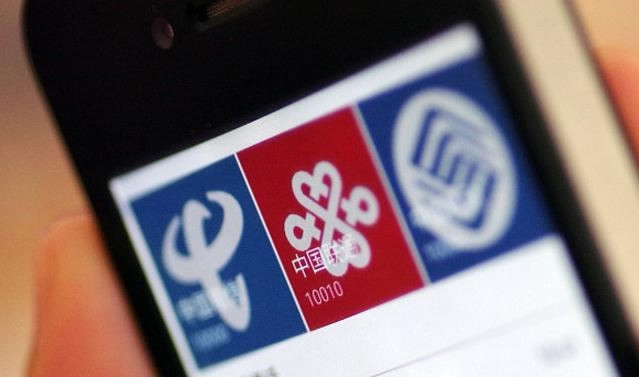China's information and communication industry is continuing to develop rapidly, Zhang Feng, spokesperson and chief engineer of the Ministry of Industry and Information Technology (MIIT), said at a press conference on Tuesday.
Significant progress has been made in speeding up China's Internet and reducing fees for telecom services, Zhang said, while broadband take-up is increasing fast.
Online coverage spreading fast

MIIT said Internet fees are to be reduced and speeds increased. /VCG Photo
Annual goals have already been met in two areas: coverage of families with stable broadband Internet has reached 67 percent, while 77.4 percent of the total population are now mobile and broadband users. As of May, China's fixed broadband had over 300 million home subscribers, while mobile broadband users had exceeded one billion.
Measures to reduce Internet fees have also been implemented. China's three telecom operators have slashed fees for international calls, while dedicated Internet access charges have been reduced by more than 15 percent. Business-dedicated Internet access and miniaturized broadband customized for middle and small-sized enterprises have been launched.

The information and communication industry is experiencing rapid development. /VCG Photo
Revenues for the telecom industry in the first quarter of 2017 were up 5.7 percent compared to the same period last year; Internet and related services enjoyed a 19.8-percent boost, while there was a net increase of 120 million in 4G users, totaling 890 million, or 65 percent of all mobile users. Cable users reached 80.9 percent.
VPN suppliers and regulations
MIIT announced in January that any institution or individual without the proper license to engage in telecom business internationally will be punished. A license is required to rent international Internet access or the use of VPN to profit from telecom business activities legally, Zhang said.
However, the regulation does not affect domestic and offshore corporations or large Internet users within China from visiting overseas websites and engaging in other legal business activities, Zhang added.
Foreign trade enterprises and transnational enterprises that need dedicated Internet access for cross-border networking can rent from telecommunication service operators who legally set international communication access, and won't be affected by the regulation either.

Institutions or individuals without the proper license to engage in telecom business internationally will be punished. /VCG Photo
Besides dedicated Internet access and VPN, enterprises who want to engage in basic telecommunication services or added-value telecommunication services must also obtain approval from the government, said Zhang. The regulation is designed to guarantee secure and reliable operation for enterprises and provide good, safe and long-term services for consumers, he added.

It is not allowed by Chinese law to spread threatening information or information about violence and terrorism. /VCG Photo
It is common in many countries to stipulate that relevant businesses must apply for licenses in accordance with the country's laws and regulations, said Wen Ku, director of Department of Communications Development of MIIT.
He added that MIIT will pay close attention to the needs of the public, while noting that Chinese law forbids the spread of threatening information or information related to violence and terrorism.
Progress on faster and more affordable networks
The construction of a high-speed broadband network has been continuously promoted. Up to the first half of 2017, cities throughout China have been built into urban optical network with a total of 2.99 million 4G base stations.

China's three telecom operators (from L to R): China Telecom, China Unicom and China Mobile. /VCG Photo
China's efforts to build faster and more affordable networks have also boosted the development of the country's digital economy.
China's digital economy reached 22.6 trillion yuan (about 3.35 trillion US dollars) in 2016, accounting for 30.3 percent of the country's GDP. It has become a core power to drive economic growth, making an increasing contribution to China's GDP.

China has made efforts to facilitate faster and more affordable Internet connection. /VCG Photo
China's three major telecom operators have made great efforts to upgrade the Internet speed to serve the public better, especially in terms of digital economy, added Wen.
(CGTN's Xie Zhenqi also contributed to this story.)









